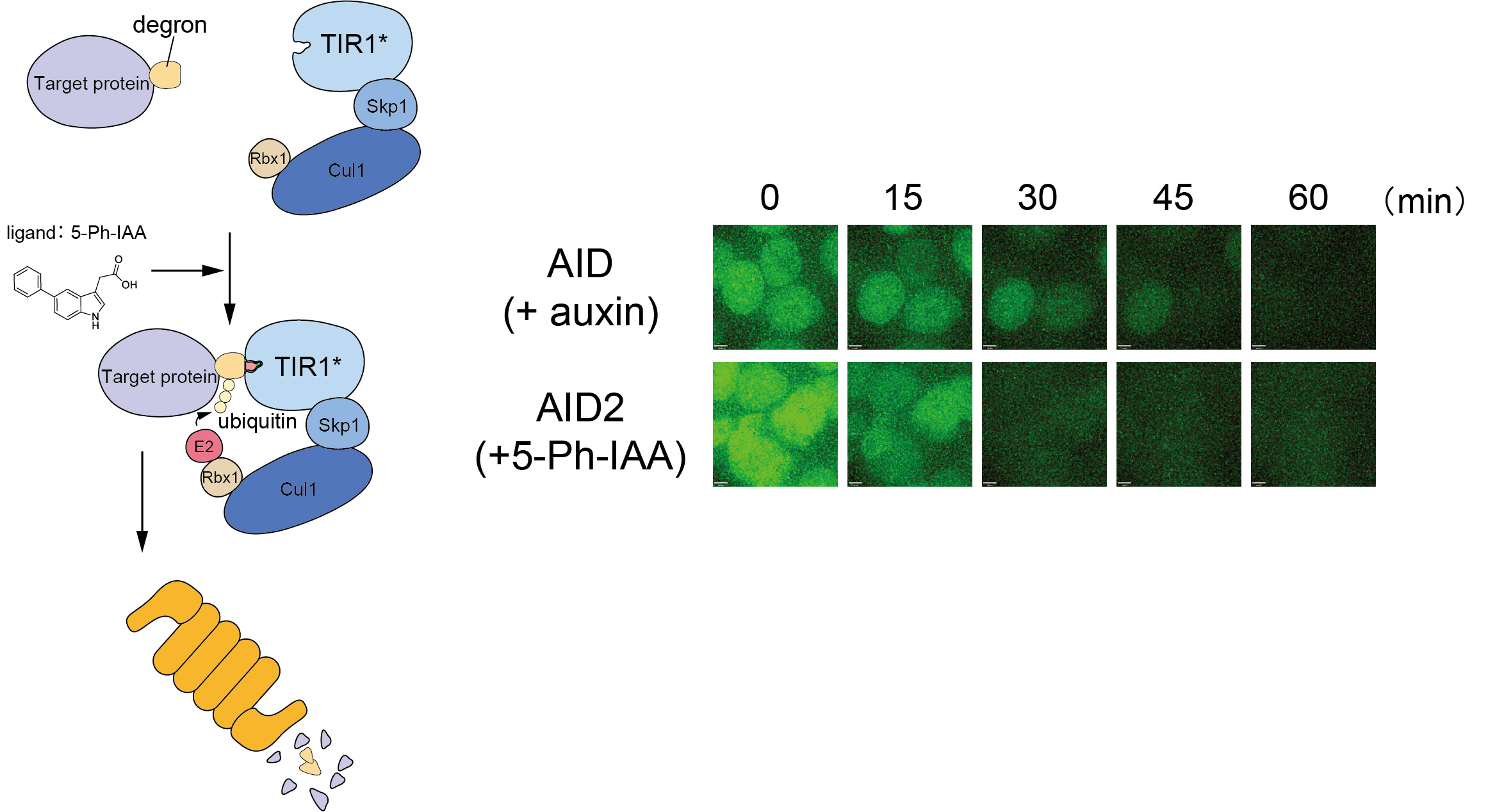Kanemaki Group • Molecular Cell Engineering Laboratory
Studying DNA replication by use of an original degron-based technology
Faculty
Research Summary
Our laboratory pioneered to develop the auxin-inducible degron (AID) technology, by which degron-fused proteins of interest can be rapidly degraded by the addition of a plant hormone, auxin. We recently improved it and established AID2 to control the degradation of proteins of interest not only in yeast and mammalian cell lines, but also in mice. We are currently trying to develop related genetic technologies and, by employing AID2, to understand the mechanisms of DNA replication in human cells and mice.

Selected Publications
Saito Y, Santosa V, Ishiguro KI, Kanemaki MT. MCMBP promotes the assembly of the MCM2-7 hetero-hexamer to ensure robust DNA replication in human cells. Elife. 2022 Apr 19;11:e77393.
Kanemaki MT. Ligand-induced degrons for studying nuclear functions. Curr Opin Cell Biol. 2022 Feb;74:29-36.
Yesbolatova A, Saito Y, Kitamoto N, Makino-Itou H, Ajima R, Nakano R, Nakaoka H, Fukui K, Gamo K, Tominari Y, Takeuchi H, Saga Y, Hayashi KI, Kanemaki MT. The auxin-inducible degron 2 technology provides sharp degradation control in yeast, mammalian cells, and mice. Nat Commun. 2020 Nov 11;11(1):5701.
Natsume T, Nishimura K, Minocherhomji S, Bhowmick R, Hickson ID, Kanemaki MT. Acute inactivation of the replicative helicase in human cells triggers MCM8-9-dependent DNA synthesis. Genes Dev. 2017 Apr 15;31(8):816-829.

















